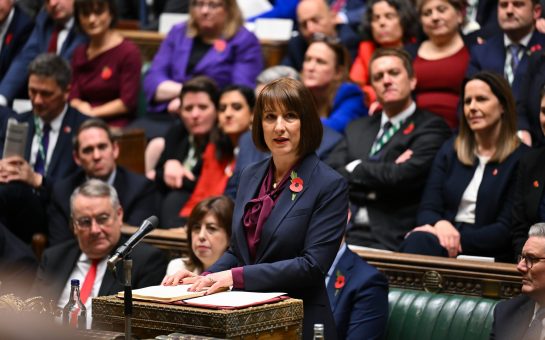Are the reasons behind male suicide ‘many and varied’ or does the cause of such tragedies lie primarily in the fact that men are ‘no longer the provider’ for their families?
MM spoke to the director of So Here We Are – a play exploring male suicide, currently running at Manchester’s Royal Exchange Theatre – and a spokesperson of The Survivors of Bereavement by Suicide to explore the answer to that question.
So Here We Are is a play that presents this sensitive topic delicately, portraying the characters realistically so that people may find them relatable.
Director Steven Atkinson, originally from St Helens, spoke about the nature of directing a play with such emotive, hard-hitting themes.
He said: “Clearly men’s mental health is a subject that needs discussion and focus, which this play obviously contributes too.
“It’s not an easy subject to dramatise because depression doesn’t necessarily lend itself easily to entertainment.
“The causes of depression in young men are many and varied and private.
“What I felt was so effective about So Here We Are was that depression and suicide are the hardest things to discuss.
“The characters talk about everything else, and often use humour to survive. “
He justified the play’s potentially controversial and thought-provoking representation of the characters struggles with differing situations in day-to-day life, as ‘very entertaining whilst being true’.
The suicide rate stands at 10.9 per 100,000 people in Greater Manchester, rising to 11.8 per 100,000 in Lancashire – the highest in the country – according to research by the Centre for Mental Health and Safety at The University of Manchester.
The findings suggest that suicide rates are at a higher level in the North than in the South-East, with an increase in suicide rates nationally.
The report found that suicide cases have increased over the past four years with cases of male suicide having risen from the last study in 2006-2008.
The report found that there were 4,799 male suicides in the general population in 2013, although the number of suicides by males aged 25-34 and 65+ has decreased.
The largest increase since 2006 is the age-group 45-54 with a 37% increase as well as men aged 55-64 showing an increase of 29%.
The question as to why numbers of male suicide rates have increased and the reasons behind this were highlighted and explored in the report.
The report suggests several factors such as alcohol use, unemployment and economic pressure may have contributed to increased male suicide rates over the years.
The Survivors of Bereavement by Suicide organisation, which have groups country-wide including in Manchester and Bolton, gave MM their thoughts behind the increased figures.
Spokesperson Eric Thwaites said: “Most of our groups consist of females looking for help and support after losing their husband, partner or son.
“The reason for this could be due to the current state of employment.
“Once the male was the provider for his family, now this has changed and has become more of a female role.
“There is a great need for this to be portrayed as a mental health illness, the public seem to think suicide is the easy way out.
“This also needs to be reported by the press with a little more sensitivity.
“People need to realise that suicide is no longer a crime and the use of the wording ‘committed suicide’ needs to be changed.”
The organisation disclosed that they had seen an ‘increase’ in numbers of phone and email contact and ‘a huge increase on website activity’.
The University report claimed that more contact between medical staff and the patient’s family could reduce 14% of suicides amongst patients.
The play director shared his view on the importance of breaking down the taboos in society and spreading the message about mental health and suicide.
He said: “There is a greater need to extend the resources into finding out more about mental health and correctly diagnosing treatment, this then potentially reduces suicide rates throughout the UK.
“It’s clearly a major social issue. It’s something that probably needs to be addressed at school level.
“If the problems get foregrounded then hopefully those who do suffer from depression have the ability to self-diagnose and then know where to find help.”
The SOBS organisation outlined what it means to be a friend or relative of the deceased and the problems and emotions they may encounter.
Mr Thwaites said: “Suicide is a lifetime bereavement which many don’t understand; you lose friends because they don’t know what to say.”
He described the effect on someone who has experienced a suicide in their circle as feelings of guilt, anger and suicidal thoughts themselves.



